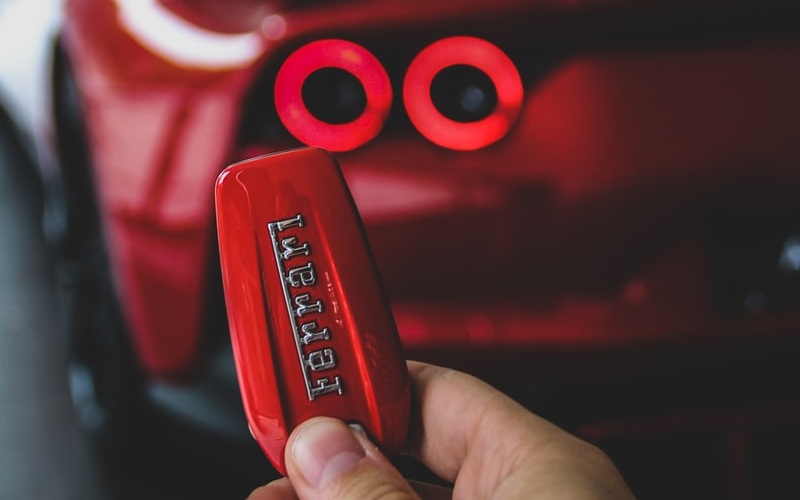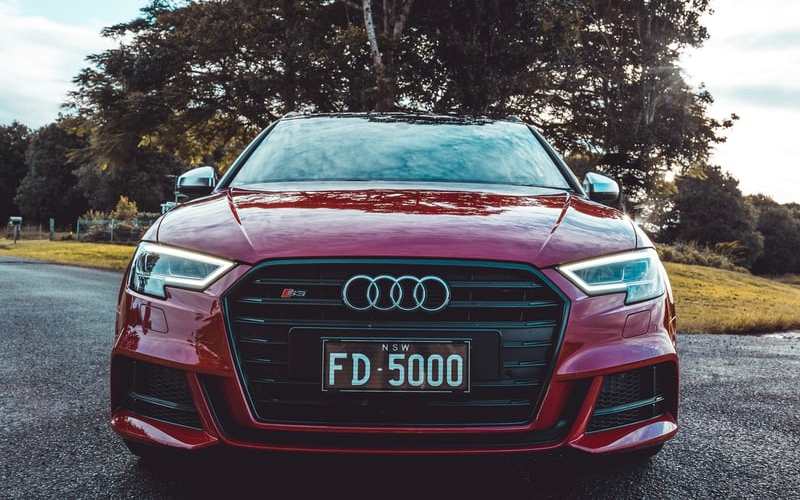If you're looking for a new car and don't have enough cash to buy the one you want, you have two main options. You can buy the car with a car loan, or you can enter into a lease agreement.
What is car leasing?
Leasing a vehicle means borrowing it for a set period, typically two to five years, and making regular payments. It's like renting a house - you aren't the owner, but have a legal right to use the vehicle for the lease term.
In Australia, people most commonly lease vehicles through an arrangement with their employer. This might be a finance lease, where a car is bought for business purposes, or a novated lease which can sometimes be for an employee's personal use. However, there are still some operating lease agreements that are just between the borrower and the finance company.
In the market for a new car? The table below features car loans with some of the lowest fixed and variable interest rates on the market.
| Lender | Car Loan | Interest Rate | Comparison Rate* | Monthly Repayment | Interest Type | Vehicle Type | Maximum Vehicle Age | Ongoing Fee | Upfront Fee | Total Repayment | Early Repayment | Instant Approval | Online Application | Tags | Features | Link | Compare | Promoted Product | Disclosure |
|---|---|---|---|---|---|---|---|---|---|---|---|---|---|---|---|---|---|---|---|
5.99% p.a. | 7.12% p.a. | $580 | Variable | New | No Max | $8 | $400 | $34,791 |
| Promoted | Disclosure | ||||||||
6.52% p.a. | 6.95% p.a. | $587 | Fixed | New, Used | No Max | $0 | $350 | $35,236 |
| Promoted | Disclosure | ||||||||
6.28% p.a. | 6.28% p.a. | $584 | Fixed | New | No Max | $0 | $0 | $35,034 |
| Promoted | Disclosure |
Car leasing options
There are a few different types of car leases in Australia:
Novated leases
A novated car lease is an arrangement between an employee, their employer, and a finance company where the employer makes lease payments from the employee's pre-tax salary - reducing their taxable income.
While this can mean tax savings, it can also trigger fringe benefits tax, paid by the employer.
The leased car can be for personal use and is often bundled with running costs like fuel, maintenance and insurance. Most employees are eligible - you'll just need your employer to agree to it.
At the end of their lease, the employee can typically either extend the lease, keep the car by paying any 'residual value' or sell or trade it in.
Finance leases
Cars used by businesses can be paid for through a finance lease. This means the vehicle is bought by a finance company then rented out to the lessee over a lease period. Once this period elapses, the lessee is obligated to either purchase the car from the finance company by paying the residual value or lease the car again.
Operating leases
Operating leases are like a finance lease except the lessee is not responsible for the residual value at the end of the lease - the car is simply handed back to the finance company. Some businesses with a high turnover of vehicles use operating leases to reduce administration costs, but operating leases are also sometimes used by individuals.
Why leasing might be better than a car loan
Leasing a vehicle can offer several compelling advantages compared to outright buying with a loan:
Lower cost
Compared to monthly car loan repayments, leasing can be significantly less expensive. Since you aren't paying off the principal amount each month, just the cost of borrowing, lease payments tend to be well below equivalent loan repayments.
Lease payments often also include things like servicing, registration and insurance, which can make budgeting a lot easier and help to avoid surprise repair bills.
Drive the latest models
Leasing makes it easier to upgrade to a new model every few years,. That means you can always be driving with the latest safety, tech and fuel efficiency updates.
Tax benefits
Unlike loan repayments, you can pay the cost of a novated lease from your pre-tax income. This reduces your taxable income, which can mean significant savings when tax time rolls around.
Why a car loan is better than leasing
On the other hand, there are also plenty of good reasons why financing tends to be more popular than leasing.
Ownership
Buying a car with a loan means you have more extensive ownership rights compared to leasing. If you want to modify it while it's under finance, you might still need your lender's permission, but you'll likely still have more freedom than if the car is leased. After the loan is paid off, all bets are off - you'll be free to install hydraulics to make a Jesse Pinkman-style bouncy car, which a leasing provider would likely have some reservations about.
No mileage limits
Leases sometimes come with limits for how many kilometres you can drive with the car and may charge fees for excess wear and tear. With a car loan, there are generally no such restrictions - you can use it however you want, be it work, travel or recreation.
Can be better financially in the long term
Lease payments may generally be lower than loan repayments, but in the long run you usually will come out ahead by actually owning the vehicle, especially if you plan to keep the car beyond the loan term. Once the loan is paid off, you don't have to pay anything (barring running costs), so you could potentially save thousands compared to successive leases.
Leasing vs financing a car: what to remember
-
When leasing a new car, you're essentially paying for the vehicle's depreciation, with the car's value falling by as much as 60% over the first few years. By repeatedly taking out a lease on a new car at the end of each lease term, you're basically always paying the top price.
-
Generally, the longer you're going to hold the car, the more you'll save by buying it instead of leasing it.
-
Beware of agreeing to a lease if you're not sure you can commit to it over the entire term. Leaving a lease early might see you having to pay the remaining lease and the residual value.
-
Like a car loan, car leases require a credit check. A poor credit rating can mean you pay more, or your application may be rejected outright.
-
If you're driving a car significantly less than what the car lease permits (the maximum mileage), you'll be doing an unnecessary favour for the finance company when you trade it in at the end of the lease. You'll have paid for wear and tear that you didn't even cause.
-
Many car leases do not allow you to choose your own insurance, so you may be stuck paying for a poor value car insurance policy.
-
If you were to lose your job while under a novated lease, the lease may convert to a finance or operating lease which might mean losing your pre-tax benefits.
-
It can be risky to rely on tax benefits as government regulations can change.
Lease or Loan? The savings.com.au verdict
So, should you lease or finance your next car? It depends on your financial goals, job stability, and how long you plan to keep the vehicle.
Leasing allows you to continually upgrade your vehicle to the latest models every few years. This means you can keep up with the latest features, which might be useful professionally - if you're in sales for example you might want a flashy new ride to highlight your image.
There can also be attractive short term tax benefits to leasing. Your lease payments may come out of your pre-tax income, which can lower your taxable income and overall tax bill. Plus leases often bundle in running costs like fuel, servicing, and insurance, making budgeting easier.
However, these savings rely heavily on your employment situation. If you change jobs or your employer no longer offers novated leasing, those benefits can vanish overnight. Without the tax perks, leasing may end up costing more, particularly if you're rolling into a new lease agreement every few years.
Financing a car with a loan generally makes more sense if you plan to hold onto the vehicle long term. Once you've paid off the loan, the car is yours, and you'll avoid the ongoing cycle of repayments. While depreciation hits hardest in the first few years, owning a car outright between years five to eight can mean more cost-effective motoring - provided if you maintain it well.
If you want the latest models every few years, value convenience, and can take advantage of salary packaging, leasing could work for you.
If you're after long-term value, ownership flexibility, and lower total cost of ownership, a car loan may be the smarter choice.
As always, before locking in a lease or a loan, speak to a qualified accountant or tax adviser to understand what's best for your personal situation.
First published on July 2023
Article first published by Dominic Beattie in August 2018.





 Denise Raward
Denise Raward
 Harry O'Sullivan
Harry O'Sullivan

 Brooke Cooper
Brooke Cooper
 Emma Duffy
Emma Duffy

